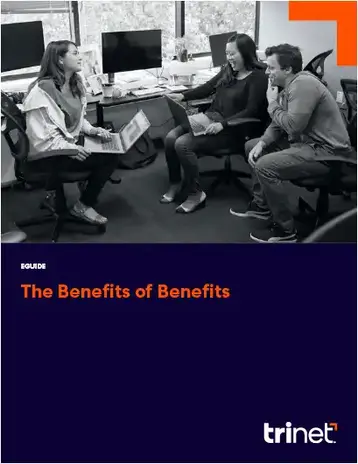
Transportation benefits, sometimes known as commuter benefits, aid employees who must commute from home to a workplace by allowing them to utilize pre-tax dollars to pay for their travel. Sometimes employees confuse healthcare FSA transportation benefits with commuter benefits because both have a pre-tax component. FSA transportation, however, is not for commuting to work. Eligible FSA transportation expenses are typically limited to travel by bus, train, taxi, or parking expenses for FSA eligible medical services.
What’s covered by a transportation or commuter benefits plan?
Since the purpose of transportation benefits is to reduce congestion, conserve fuel resources and cut down on pollution, the benefits are limited to those types of transportation that will help to achieve that goal. Currently, coverage is limited to:
- Qualified Parking
- Transit Passes
- Vanpooling
Qualified parking
This benefit is limited to parking near a place of employment, however, does not include the employee’s residence even if the employee works remotely. It can also include park-and-ride lots where an employee leaves their vehicle to utilize other forms of transportation.
Transit passes and vanpooling
Any token, pass, farecard or voucher than can be exchanged for a ride on public transit is considered a transit pass and is eligible under transportation benefits. Modes of transportation can be almost anything, including trains, busses, ferries, streetcars and even monorails. Vans are also considered under this type of benefit if the van holds a minimum of six commuters, not including the driver. Private taxis, Ubers, or Lyft transportation however is not considered part of this type of transit benefit unless the vehicle utilized meets the criteria of vanpooling (six commuters in one vehicle not including the driver).
The IRS annually adjusts the monthly amount allowed for transit passes and vanpooling and the benefit is therefore limited to that amount.
What transportation expenses are FSA eligible?
The trickiest part of offering FSAs for transportation is communicating to your employees what is and isn’t covered by their FSA plan. Each plan is different, but in general, the following parking expenses are covered by TSA accounts:
- Parking expenses incurred at work.
- Parking expenses incurred at a location where you park to commute to work by mass transit.
- Carpooling in a commuter highway vehicle.
- Vendor parking lots.
- Vendor parking garages.
Commuter FSA-eligible expenses usually also include:
- Bus transportation.
- Mass transit vehicles and passes (think bus, subway, and ferry transportation).
- Passes, vouchers or other similar means for commuting on mass transit.
- Vanpooling: the transportation between an employee’s home and work in a vehicle that seats at least six adults in addition to the driver and a minimum of 80% of the vehicle’s mileage is for commuting.
Can I use my transit FSA for gas?
Just as important as understanding what is covered by an FSA transit plan is knowing what isn’t covered. That way your employees can avoid spending on items that they won’t be reimbursed for or can’t deduct. Sorry, but gas makes this list.
Again, FSA transit policies differ, but common transportation and parking elements that don’t count as transit FSA-eligible expenses include:
- Parking expenses at an employee’s home.
- Parking expenses that aren’t incurred near work (e.g., parking FSA-eligible expenses do not include parking at offsite meetings).
- Carpooling.
- Gas.
- Toll fees.
Before you begin offering TSA benefits to your employees it’s important to think through exactly what your plan will cover and how you’ll clearly communicate that to the people who work for you. While there is some wiggle room, there are some strict federal tax laws that have to be followed no matter what. So it’s important for you to read up on transportation FSA-eligible expenses first so you don’t end up in any unexpected tax trouble along the way.
Ineligible transportation costs
In addition to private taxi services such as Uber and Lyft, transportation Benefit plans cannot be used to pay for:
- Gas
- Tolls
- Wear-and-tear on vehicles
- Mileage
Local and regional laws
The following states have local or state laws that make the provision of transportation benefits mandatory under certain circumstances:
- California: While there is no state law requiring transportation benefits, multiple locales in the state do require this benefit. One of the largest is in the San Francisco Bay Area.
- Washington DC: Employers with 20 or more employees who commute at least 50% of the time must be provided with a transportation benefit.
- New York: New York City requires that employers with 20 or more non-union employees within the five boroughs must provide a written offer of benefits.
- Pennsylvania: Philadelphia requires employers with 50 or more employees in the city, even if the employer itself is not headquartered in Philadelphia.
- Washington State: Seattle employers who have at least 20 employees (regardless of where in the world they are based) must provide this benefit.
- Illinois: Passed in 2023 and enacted in January 2024, this is one of the newest commuter laws in the United States. The law requires employers to provide a pre-tax ability to purchase transit passes for the purpose of commuting.
- New Jersey: This is the only state-wide law currently in existence. Employees only need work a minimum of 10 hours per week to qualify. Failure to comply can incur fines and penalties.
Commuter benefits help to ease the burden of getting to work, not only for the employee but for many major cities in the United States. They help to cut down on road wear and the need for repairs and improve air quality. Many resources exist to help employers get started to implement this benefit for their employees. It’s a good idea to obtain advice from a professional before embarking on your journey to off transportation benefits.
This communication is for informational purposes only; it is not legal, tax or accounting advice; and is not an offer to sell, buy or procure insurance.
This post may contain hyperlinks to websites operated by parties other than TriNet. Such hyperlinks are provided for reference only. TriNet does not control such web sites and is not responsible for their content. Inclusion of such hyperlinks on TriNet.com does not necessarily imply any endorsement of the material on such websites or association with their operators.






